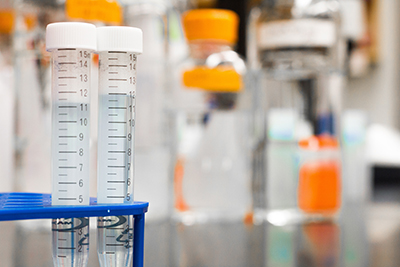
Author: Stephen Goldstein, PhD

I want to spend a bit of time clearly laying out where SARS-CoV-2 probably comes from, and how it could have ended up in Wuhan. Though it can't be completely ruled out, there is currently no evidence for the lab-escape scenario that some are proposing. In comparison, there is ample precedent for zoonotic spillover, the transfer of virus from animals to humans.
Human exposure to animal viruses occurs every day worldwide, probably multiple times each day, due to our intense interactions with wildlife both directly and via agriculture. There are many examples of this resulting in zoonotic infection and small outbreaks, epidemics, and pandemics that result in animal viruses becoming endemic (a disease regularly found among human populations). Examples include SARS, Ebola, Marburg, smallpox, Nipah, Hendra, Measles, HIV, hantaviruses, arenaviruses and now-endemic human coronaviruses (OC43, 229E, NL63).
Since 2003, research (largely carried out by the Wuhan Institute of Virology) has shown conclusively that dozens of SARS-related coronaviruses (SARSr)-CoVs circulate in bats in the Yunnan province of southern China. Although Yunnan is the natural geographic range of these viruses, the SARS epidemic started in the Guangdong province, demonstrating that bat SARSr-CoVs have moved outside of their natural range by human transport of infected hosts. These include natural hosts, such as bats, or infected intermediate hosts, such as civets and raccoon dogs, in the case of SARS.
Research by Chinese and American labs have shown that some of these viruses naturally infect human cells via ACE2, the SARS and SARS-CoV-2 receptor, showing that while adaptation in intermediate hosts or humans may occur, it is not necessary. This clearly demonstrates that adaptation via genetic engineering or passage in the lab is not required for human infection. Additionally, there is no evidence SARS-CoV-2 was known to science before the COVID-19 pandemic began.
The closely related viruses found in previously collected samples — RatG13 and RmYN02 — are separated from SARS-CoV-2 by several decades of evolutionary time, showing they are not the progenitor of SARS-CoV-2 via either natural evolution in animals or in the lab. This further indicates there is no evidence that the direct progenitor of the pandemic virus was in any lab before the pandemic.
So, what is a plausible scenario for the SARS-CoV-2 spillover, relying on ample precedent and evidence of closely related viruses in the wild? The viruses found in pangolins are a critical clue. These viruses were found in Malayan pangolins in Guangxi and Guangdong provinces that were seized in anti-wildlife trafficking operations. This occurred outside the native range of both the pangolins and SARSr-CoVs. These viruses may circulate in pangolins, or more likely they are bat viruses that have spilled over to pangolins, similar to the original SARS virus. Either way, the discovery of these viruses outside their natural range is indicates that human activity moves SARSr-CoVs around China, large distances away from where they naturally circulate and "belong".
Animals from southern China are known to be trafficked beyond Guangdong, given the documented sale of these animals in the now-infamous seafood market in Wuhan. There is no reason to doubt infected animals (either transiently infected intermediate hosts or established intermediate hosts) are transported across the distance separating southern China and Wuhan. The distance (~1,000 miles) sounds large but is in fact trivial, less than the distance between Miami and NYC. Therefore, a scenario wherein infected animals are transported from or through the natural range of SARSr-CoVs is not only plausible but has actually happened in the past. It is documented to have occurred as late as 2017 and 2019 (when the infected pangolins were seized).
This trafficking and transport did not end following the 2003 SARS pandemic. In contrast, there is no evidence for the much less extensively documented history of lab-acquired infections or "escapes" resulting in widespread transmission of animal viruses into the population.
Finally, the evidence-free campaign to assign the COVID-19 pandemic to a lab escape is incredibly counterproductive from the standpoint of human health. These viruses circulate in the wild and will continue to do so. This will not be the last zoonotic spillover of SARSr-CoVs. The end of incredibly productive collaboration between western and Chinese scientists can only reduce our ability to identify such spillover events early, negatively impact efforts to reduce the human-wildlife interface and mitigate the impact of spillover events. We will be less safe as a result. SARS-CoV-3 is out there, and we must do everything possible to prevent anything like this from happening again.
- Originally published by @stgoldst on Twitter